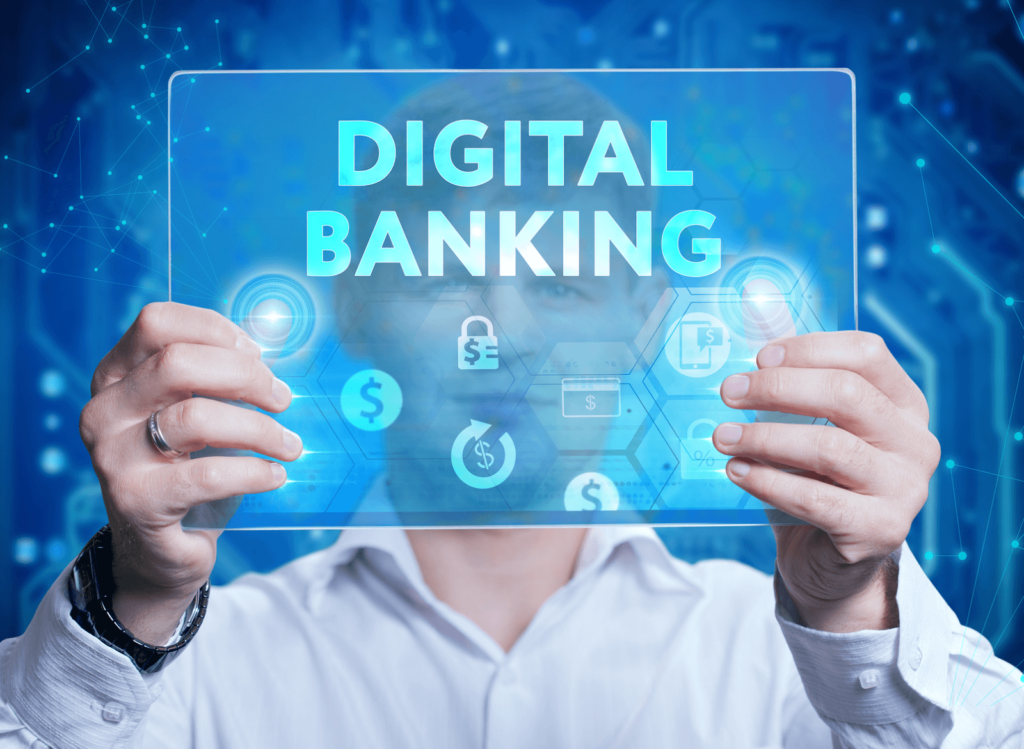In a world driven by technology and connectivity, online banking has emerged as a transformative force, reshaping how we manage our finances. This essay takes you on a journey through the realm of online banking, exploring its benefits, functionalities, and impact on the way we interact with our money.

The Rise of Digital Banking:
Online banking, also known as internet banking or e-banking, allows individuals to perform various financial activities through digital platforms. From checking account balances to transferring funds, online banking provides a convenient and efficient way to handle transactions without the need to visit physical bank branches.
The Convenience Factor:
One of the most significant advantages of online banking is convenience. With a few clicks, you can access your accounts anytime, anywhere. No longer bound by banking hours, you can manage your finances on your schedule, eliminating the need to rush to the bank before closing time.
Financial Transactions at Your Fingertips:
Online banking offers a plethora of functionalities. You can pay bills, transfer funds between accounts, set up automatic payments, and even apply for loans or credit cards—all from the comfort of your home. This streamlines financial tasks, making them more efficient and less time-consuming.
Enhanced Security Measures:
Security concerns are a valid consideration in online banking. However, banks have invested heavily in robust security protocols, such as encryption and multi-factor authentication, to ensure that your financial data remains safe from cyber threats. It’s essential to practice good security habits, like using strong passwords and avoiding public Wi-Fi for sensitive transactions.
Financial Tracking and Management:
Online banking platforms often offer tools to track and categorize your expenses, helping you gain insights into your spending habits. You can set up alerts for account activity, ensuring that you’re promptly notified of any unusual transactions.
The Digital Transformation:
Online banking has not only benefited individual users but also propelled the banking industry into a digital era. Financial institutions have optimized their services to cater to the demands of tech-savvy customers. As a result, we’re witnessing the decline of traditional brick-and-mortar banking in favor of digital experiences.
Online banking has revolutionized the way we interact with our finances. Its convenience, functionality, and security measures have made it an indispensable tool for modern-day financial management. As technology continues to evolve, online banking is likely to remain a cornerstone of how we handle our money, offering us the power to take control of our financial lives with ease.

Bài luận 2: Online Banking: A New Horizon in Financial Management
In an age characterized by digital transformation, the landscape of financial management has been significantly reshaped by the advent of online banking. This essay delves into the intricacies of online banking, unraveling its impact, benefits, and considerations, as we navigate the realm of virtual financial transactions.
A Glimpse into Online Banking:
Online banking bridges the gap between traditional banking practices and the digital age. It encompasses a spectrum of services that enable individuals to perform financial transactions and manage accounts via internet-enabled devices.
The Era of Convenience:
Perhaps the most notable hallmark of online banking is convenience. No longer bound by physical locations or banking hours, customers can access their accounts, review transactions, and initiate transfers at their convenience. The 24/7 accessibility has redefined the way we engage with our finances.
Wide-Ranging Functionalities:
The functionalities of online banking extend far beyond basic account inquiries. From paying bills to transferring funds between accounts, from setting up direct deposits to applying for loans, the virtual platforms offer a comprehensive suite of financial services at your fingertips.
Security in the Digital Realm:
Security concerns are a natural part of any digital endeavor, and online banking is no exception. However, financial institutions have taken significant measures to safeguard user data. Encryption, multi-factor authentication, and real-time alerts are among the arsenal of security tools designed to protect your financial information.
Empowering Financial Literacy:
Online banking platforms often provide tools that empower users to take control of their financial journeys. You can track expenses, categorize spending, and set budget goals, fostering financial literacy and responsible money management.
Redrawing the Banking Landscape:
Online banking has prompted a paradigm shift in the banking industry. The digitization of services has led to the emergence of online-only banks and the incorporation of advanced technologies like artificial intelligence in customer interactions.
In Conclusion:
Online banking is a catalyst of change in the financial landscape. Its convenience, array of services, security features, and potential for enhancing financial literacy have positioned it as a cornerstone of modern financial management. As the world continues its digital progression, online banking is poised to remain an essential tool, offering individuals the autonomy and efficiency to navigate their financial paths with confidence.























Discussion about this post